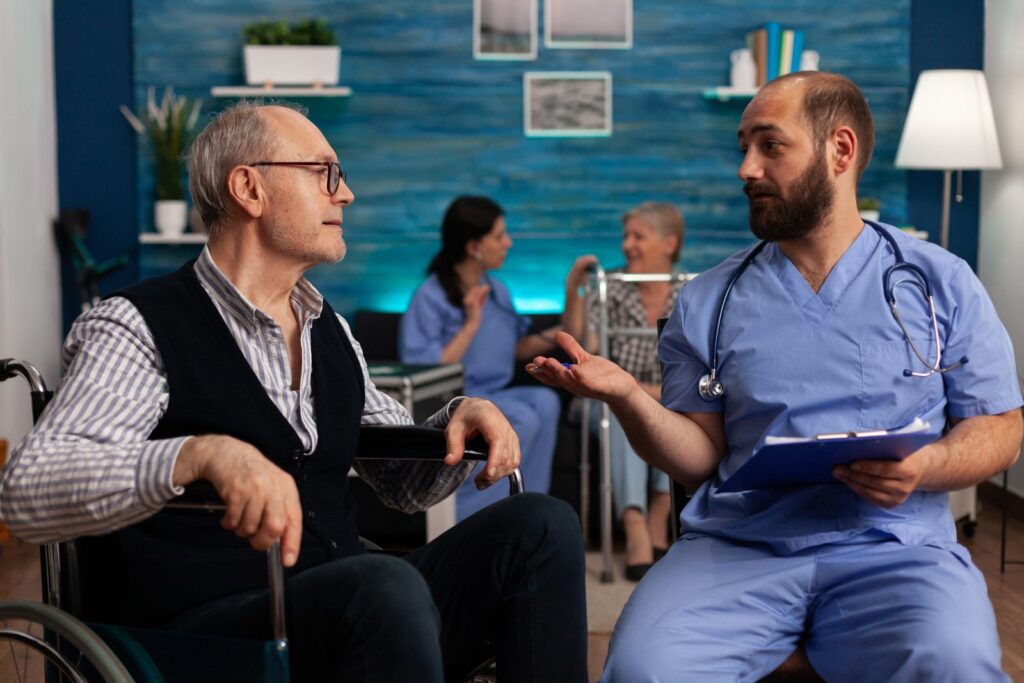Introduction: Why Communication Skills Matter in Nursing Practice

Within the ever-evolving world of nursing, technical proficiency and clinical knowledge are rightfully celebrated. Yet, one critical skill often underutilized or overlooked is the ability to communicate persuasively and clearly—not just at the bedside, but within larger groups. Recent insights highlight that mastering public speaking is more than an asset; it’s a leadership instrument that can quickly drive meaningful change in clinical settings, education, and patient advocacy.
Mastering One-to-Many Communication:
A Leadership Imperative for Nurses
While one-on-one conversations remain important for compassionate, individualized care, today’s healthcare landscape increasingly demands that nurses effectively address and educate groups: patients, families, teams, and even entire communities. The ability to present clearly and confidently in these settings—whether conducting patient teaching sessions, presenting at shift handovers, leading family conferences, or representing nursing at policy meetings—can magnify a nurse’s impact far beyond what is possible in individual conversations.
Key Clinical and Professional Benefits:
- Faster Knowledge Dissemination: Efficiently conveys vital updates or protocols to entire units or on inter-professional rounds.
- Increased Influence: Shapes health policy, procedure adoption, and practice standards at institutional or community forums.
- Empowerment: Provides platforms to advocate for patients, raise awareness on issues like safe staffing, and challenge outdated norms.
The Nursing Perspective:
Overcoming Barriers to Effective Public Speaking
Nursing professionals may encounter trepidation when addressing groups—sometimes, with a sense of “losing vibrance” compared to one-on-one interactions. Contributing factors can include limited training in public speaking during nursing education, anxieties about error or judgment, and the increasing dominance of digital communication, which—as the commentary notes—correlates with a general decline in face-to-face presentation skills.
Best Practice Recommendations for Nurses:
- Practice and Feedback: Regularly rehearse presentations and seek constructive peer or mentor feedback.
- Patient-Centered Framing: When delivering education or updates, always anchor the message around how content benefits patient safety and outcomes.
- Nonverbal Communication: Maintain eye contact, use open body language, and project energy—engagement is as vital as content accuracy.
- Adaptability: Tailor messages for the audience, whether they are medical colleagues, non-clinical staff, or patients and families.
Clinical Guidelines:
Integrating Effective Communication Into Care
While the script does not detail specific clinical procedures, the underlying principle is clear: Nurses who are skilled in public speaking achieve faster and broader improvements. Some actionable steps include:
- In-Service Training Facilitation: Lead brief “huddle” sessions to share new evidence, medication safety updates, or procedural changes.
- Patient Group Education: Use group sessions for chronic disease management education, producing ripple effects in self-management and adherence.
- Debrief and Incident Reporting: Foster honest, blame-free discussion environments following clinical events, aiding collective learning and psychological safety.
Patient Management and Education:
Harnessing Speaking Skills at the Bedside and Beyond
Modern patient care frequently extends beyond the individual; family meetings, discharge planning sessions, and patient forums all benefit from a nurse’s capacity to address and engage groups. Strong communication here can:
- Increase comprehension of complex medical advice among patients/families.
- Reduce anxiety by answering group questions and clarifying care pathways in a structured, supportive forum.
- Promote health literacy and encourage active participation in care decisions.
Documentation and Follow-Through:
Clear verbal communication must be paired with thorough documentation. Any group instructions or patient education delivered should be recorded in the electronic health record for continuity and legal protection.
Professional Development:
Cultivating the Leader in Every Nurse
Mastering public speaking not only impacts patient outcomes, but also opens doors for career advancement and leadership roles—whether as nurse managers, educators, clinical specialists, or advocates. Developing this skill combats the prevalent underestimation of nursing’s role in policy and innovation.
Enhancement Strategies:
- Continuing Education: Seek workshops, webinars, or courses focusing on healthcare communication.
- Simulation Labs: Participate in or advocate for simulation-based training integrating public speaking as a component.
- Mentorship Programs: Join or lead mentorships where presentation skills are explicitly addressed.
Clinical Implications for Nursing Practice
- Faster Implementation of Evidence-Based Change: Group teaching and clear communication accelerate adoption of new protocols or medications.
- Improved Interdisciplinary Collaboration: Confidently presenting in interdisciplinary rounds ensures nursing perspectives are valued.
- Stronger Patient Advocacy: Articulate group communication empowers nurses to advocate for patient and staff needs at administrative and public forums.
- Skill Transfer: As digital interaction increases, intentional practice of live verbal communication becomes essential to maintaining—and elevating—these vital skills.
Conclusion: Elevate Your Voice, Expand Your Impact
Nursing is as much about influence as it is about interventions. Public speaking is not just the domain of administrators or educators—it’s a universal nursing leadership tool. By practicing and prioritizing one-to-many communication, nurses of all levels can drive change, improve care delivery, and advance their profession.
Nurses are encouraged to actively seek out opportunities to hone public speaking skills, apply them in everyday clinical practice, and support peers in developing this critical competency. The more nurses communicate confidently and collectively, the greater the change they can catalyze—in their units, institutions, and the broader world of healthcare.
Key Takeaway Points
- Mastering public speaking transforms nurses into powerful agents of change at the bedside, in teams, and beyond.
- Intentional communication skills development is essential for modern nursing leadership and patient advocacy.
- Every nurse, regardless of role or seniority, benefits from expanding their ability to confidently address and educate groups.
- Continuous, real-world practice and lifelong learning are critical to maintaining effective public speaking prowess.
Start today—raise your voice for your patients, your colleagues, and the advancement of nursing practice.

